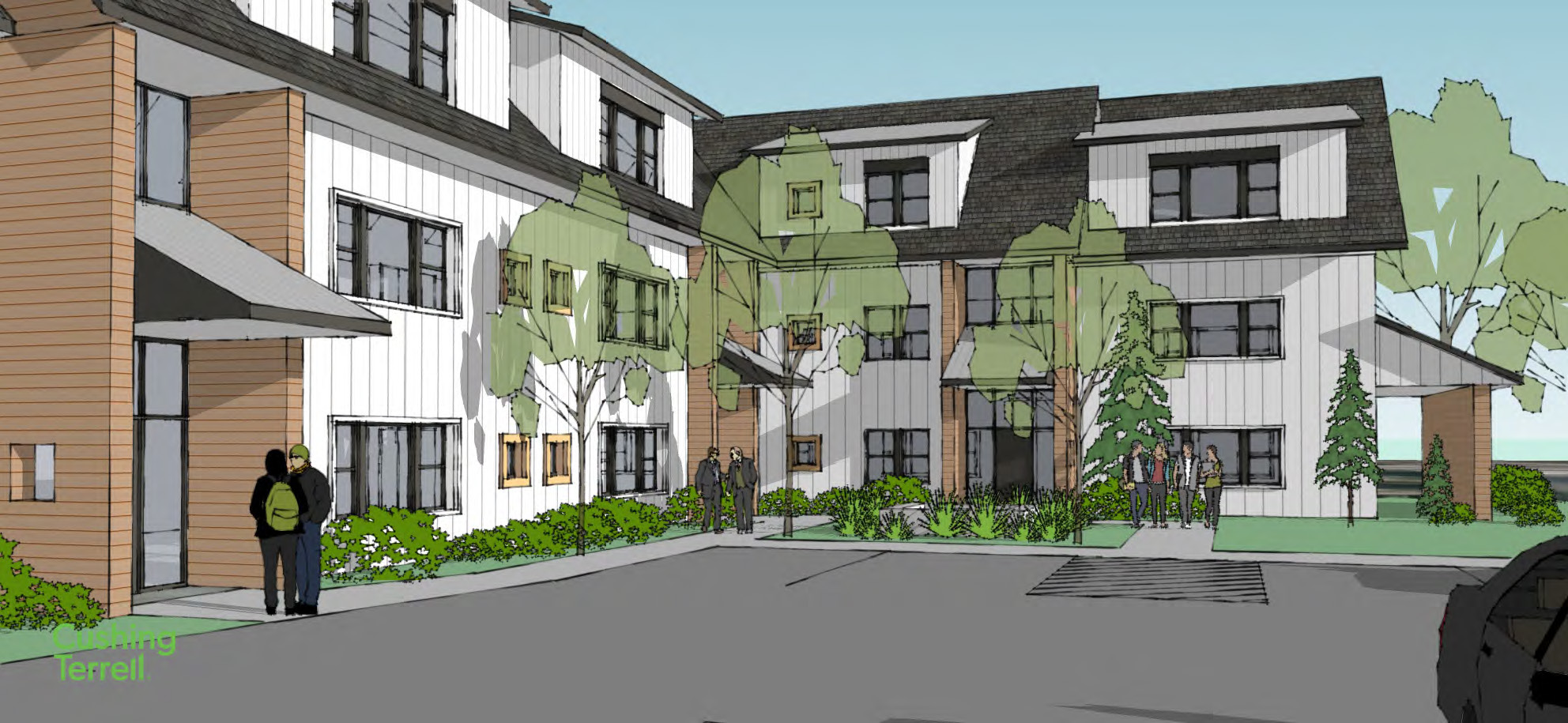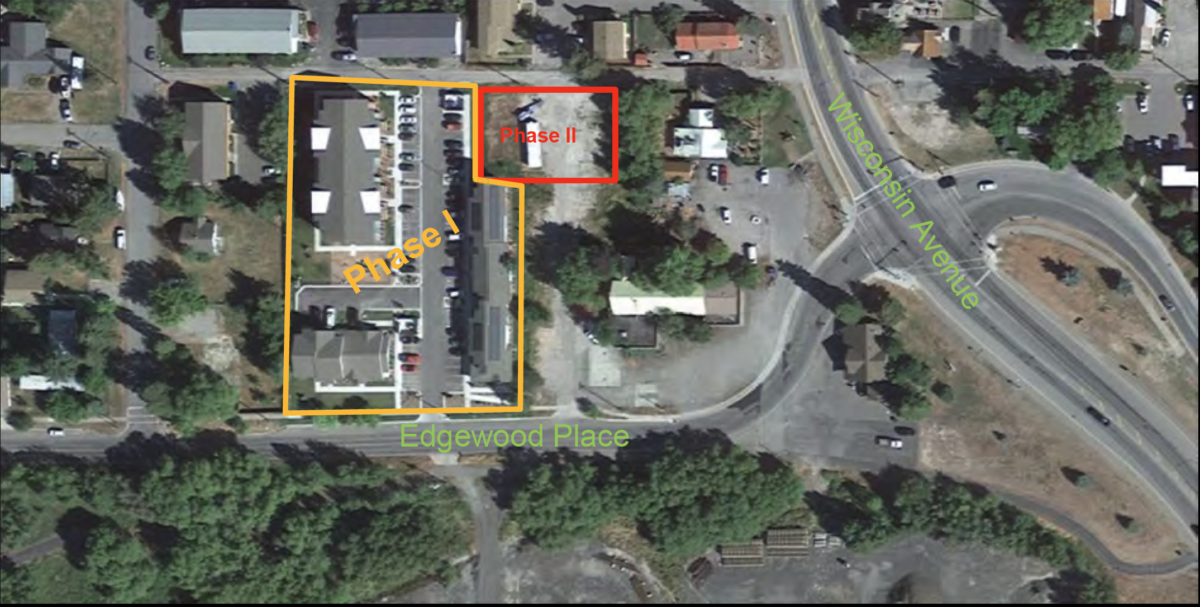Whitefish’s New Development Board Approves 18-unit Second Phase of Alpenglow Apartments
Daniel Sidder, the executive director of Housing Whitefish, said the project's goal is to accommodate tenants making 80% of the area median income
By Mike Kordenbrock
The newly formed Whitefish Community Development Board voted unanimously Thursday night to recommend the city council approve a request by Housing Whitefish to build additional affordable housing as part of the Alpenglow Apartments affordable housing development on the 500 block of Edgewood Place.
The 18 additional units, called Phase II of the Alpenglow Apartments, would be deed-restricted for Whitefish residents based on income, and housed in a single structure on the east side of the parcel.
Two of the units will be restricted for -people making between 60 and 80% of the area median income, and the other 16 will be for people making up to 120% of the area median income, with rent coming out to about 30% of a person’s income. Daniel Sidder, the executive director of Housing Whitefish, told the board that the goal is for the whole project to average renting to people making 80% of the area median income. Phase I of the Alpenglow Apartments has units rented out to people making 60% or less of the area median income. As Sidder explained to the board, someone making 100% of the area median income would earn about $58,800 a year.

The first phase of the Alpenglow project, consisting of 38 rental units divided across three buildings, was proposed by the Whitefish Housing Authority and approved by the council in 2019, and began renting to occupants a couple years later. Housing Whitefish is a nonprofit that works with the Whitefish Housing Authority, and Sidder told the board that fundraising is ongoing for Phase II.
Housing Whitefish requested a handful of deviations from zoning requirements for the project, including to allow to reduce the number of parking spaces to 18, compared to the 27 that would be normally be required. Housing Whitefish also asked to be allowed to eliminate a landscaping island from the parking lot, saying that it would otherwise have to remove two rental units from the project, according to a report submitted by city staff. The applicant also asked to be allowed to have a shorter setback for a portion of the building.
The affordable housing component of the project qualifies it for the city’s Legacy Homes program incentives intended to promote the development of affordable housing in Whitefish. In this case, Housing Whitefish asked that portions of the building be allowed to go up to 38 feet and 2 inches at the peak of the gable, which is a little over 3 feet above city standards, but still about 2 feet less than the maximum height allowed under the Legacy Homes program incentives.
Ahead of the board’s vote, city staff had advised that the board forward a recommendation of approval to the city council.
After the board had voted in favor of Phase II of the Alpenglow Apartments, Board Chair Steve Qunell briefly praised the project, saying that it was exciting to be getting another project going into that area.
“That’s where high density needs to be,” Qunell said.

Scott Wurster, another board member, spoke highly of what’s already been built as part of the Alpenglow Apartments, calling it “extraordinary,” and saying he lives in the neighborhood and drives by it daily. Wurster mentioned the solar power component to the first phase, and was told by Sidder that they plan on studying the use of solar power in the second phase.
The new project, if approved by the city council, will help chip away at the city’s need for more rental housing. A housing needs assessment report commissioned by the city in 2022 showed a need for 820 rental units by 2030.
The vote was one of the first official actions of the newly formed development board, which the city created in order to combine the planning board, zoning commission and board of adjustments into a single entity in response to Senate Bill 130, a law passed during the 2023 legislative session with bipartisan support which allows cities and counties to consolidate land use boards.
In October, Qunell and other members of the planning board had voted in favor of its dissolution, ahead of the development board’s formation. Following that move, the city council voted in early November to create the development board. Other members of the development board include Whitney Beckham, Phil Boland, Jon Heberling, John Middleton, and Toby Scott.